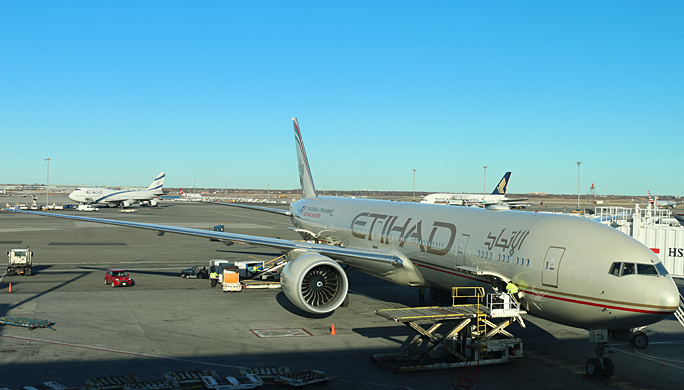Enhance your Economy Class journey is the title of an e-mail message which I received earlier today from Etihad Airways; and although I almost ignored it primarily due to the typical misuse of the word enhance, I opened it anyway and was rather stunned to read its content.
Etihad Airways to Charge Extra For Most Seat Assignments
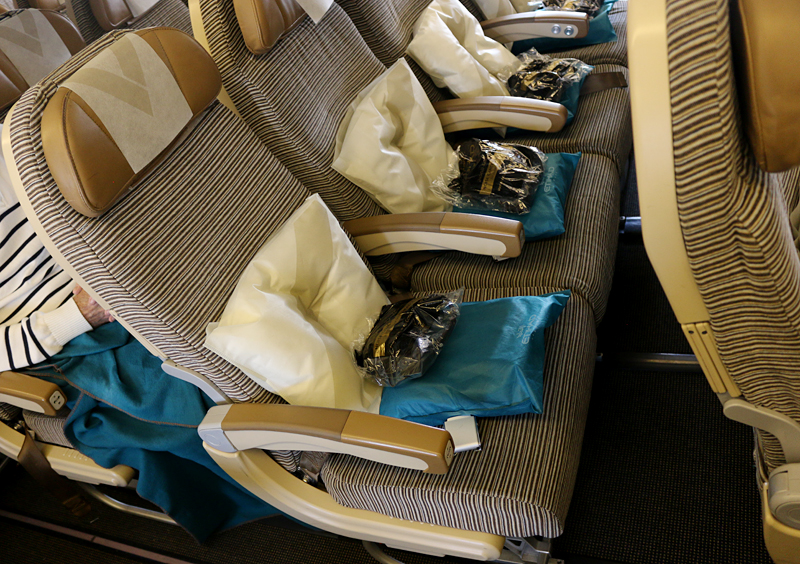
The first paragraph of the e-mail message is as follows:
Brian, continue to tailor your economy experience with the launch of our new Standard Seats on all flights from 15 July 2018. Choose from our wide range of Economy Class seating options and ensure you select the perfect seat onboard.
So far, so good, I thought — until I reviewed the content located immediate below that paragraph:
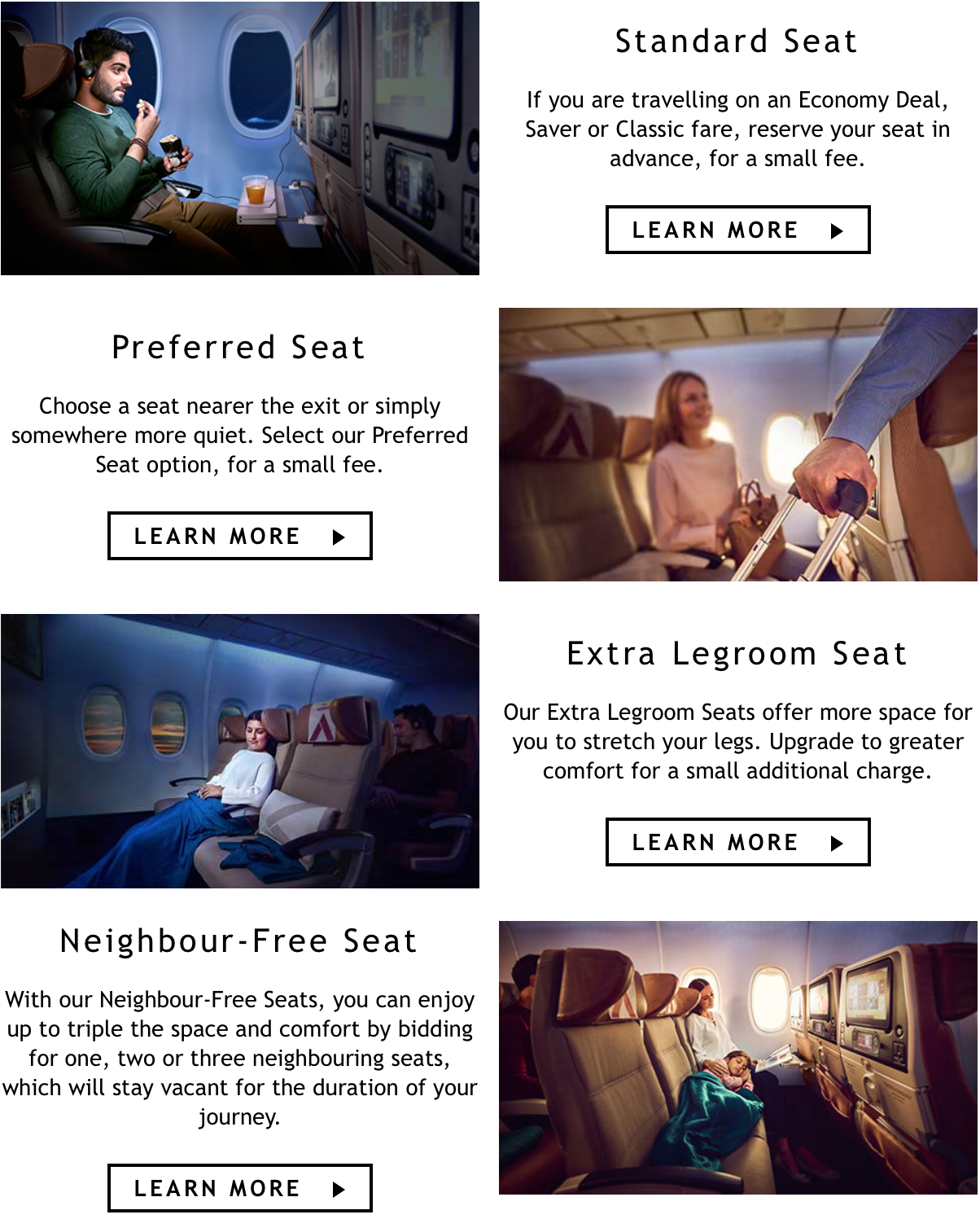
The phrases small fee and small additional charge peppered the remainder of the content of the e-mail message; and I was left wondering if I was reading it correctly: is Etihad Airways actually going to be charging customers for seat assignments?
I decided to pretend that I was booking a roundtrip flight seated in economy class cabin between New York and Abu Dhabi — similar to the first flight I ever booked with Etihad Airways back in 2015 and arguably the flagship flight of the airline — with a departure date of Thursday, September 13, 2018; and a return date of Thursday, September 20, 2018. The cost for the ticket is United States $1,151.41.
When I arrived at the part of the booking process where I can choose a seat, reality in the form of assorted bright colors stared at me…
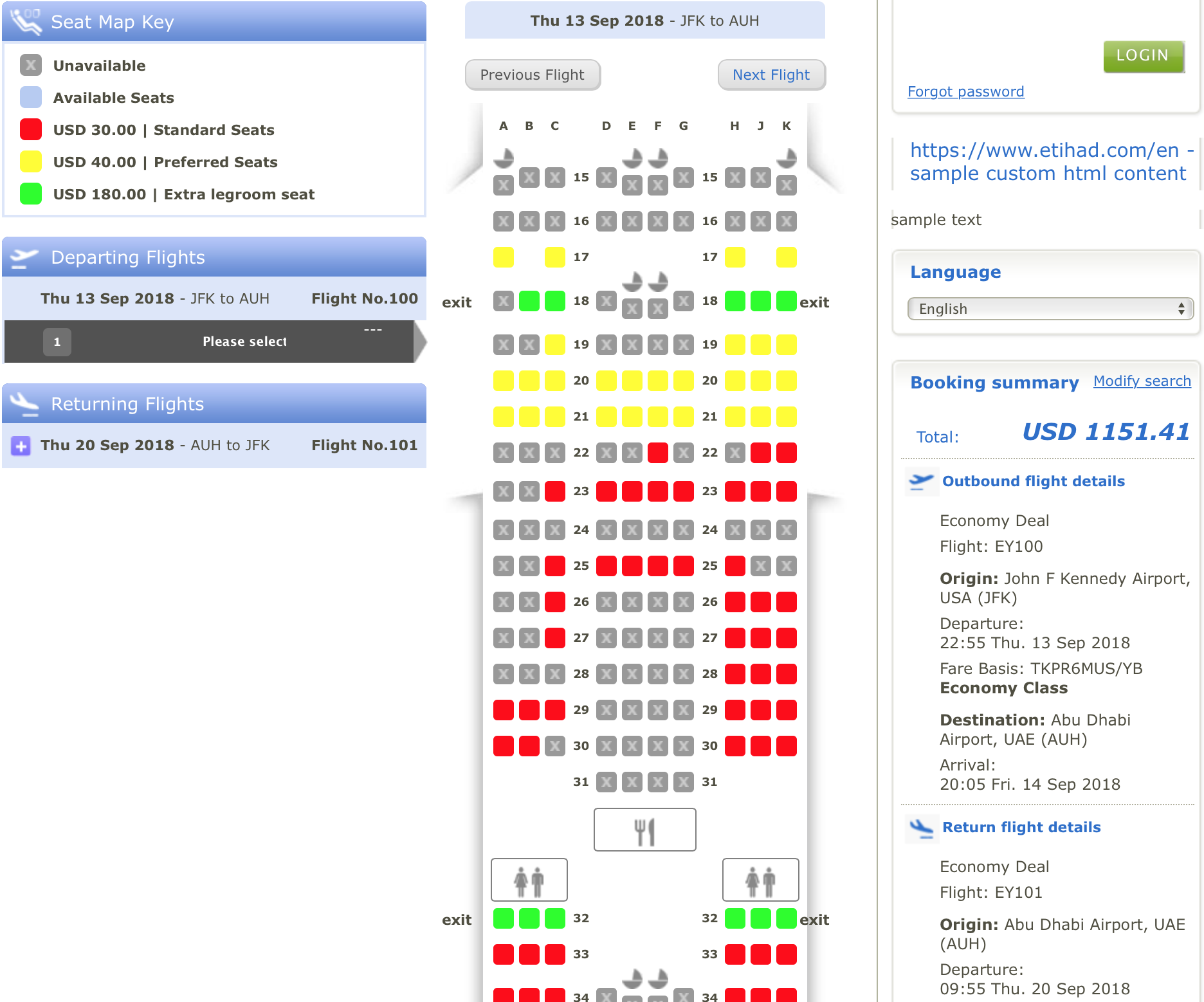
…as every seat which was available cost extra each way:
- Standard seats cost $30.00
- Preferred seats cost $40.00
- Extra legroom seats cost $180.00
Reaction
If seats are still available within 24 hours of the time of departure, customers who purchased tickets for a seat in the economy class cabin can choose whatever is left for free. Otherwise, the airline will automatically allocate seats to each customer who has not yet been assigned a seat.
“I thought most seat in Y were already standard!!”, exclaimed FlyerTalk member JayCee1966. “You can now reserve your seat for a small fee up to 24 hours before departure; free within 24 hours. Not sure how that affects those of us who check in 48 hours out…. There’ll be an almighty rush at t- 23:59 to swap seats!! Not much of an Enhancement IMHO!!”
FlyerTalk member Dubh had confirmed via Twitter with the social media team at Etihad Airways “that no matter what tier you are, everyone is paying for seat selection. This is a dreadfully poor move by EY.”
FlyerTalk member ss1710 simply posted, “Just saw this email and I am in shock honestly. I feel like this brings EY just another level (or a few levels) lower.”
I have no idea what is the cost of the neighbour-free seat policy — it likely varies by flight — so I cannot give you my reaction; but you have to bid for up to three neighboring seats for which you want to remain empty for extra comfort and room. This is the only idea which sounds like a true enhancement to me; but again, that depends on the cost.
Summary
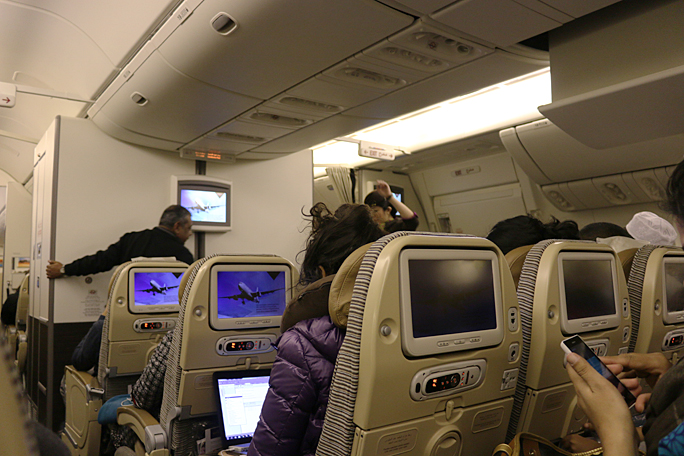
This is a cheap attempt by Etihad Airways of nickel-and-diming passengers who are already paying a significant amount of money on airfare; and it will leave a bad taste in the mouths of customers. If the cost of airfare was reduced for the example itinerary I randomly chose, I can understand charging extra for seats — similar to what ultra-low-cost airlines do.
Economy class seats on Etihad Airways are not the most comfortable ones in which I ever sat. For me, paying extra for the seat assignments would not be worth the money.
Then again, the hemorrhaging of financial assets — to the tune of billions of dollars in recent years — has forced management of Etihad Airways to be introspective as to its financial survival in the future. Under Tony Douglas — who is the new chief executive officer of the airline — some destinations are no longer served; the fleet of aircraft has been reduced; and the team of employees has shrunk in numbers.
Etihad Airways — as well as Emirates Airline and Qatar Airways — are all facing difficult futures for different reasons; and they have little choice but to implement measures to cut costs, increase prices, and decrease services however they can.
Remember when during the Open Skies debate three years ago, the three legacy airlines of the United States alleged that the three airlines of the Persian Gulf — Qatar Airways, Emirates Airline and Etihad Airways — received greater than $42 billion in supposed illegal subsidies from their respective governments in order to grow their airlines and cried foul?
“Perhaps I am naïve; but whatever ‘subsidies’ Qatar Airways, Emirates Airline and Etihad Airways might be receiving will not last forever; as no entity has an unlimited amount of funds.” I wrote that in this article on Thursday, March 19, 2015, continuing with the thought that “if the airlines of the United States — which are generally currently enjoying record profits of billions of dollars per quarter — and Europe want to face off with those three airlines, then they need to improve the products and services they offer to match theirs.”
Apparently, I was right and called it correctly. I still believe to this day that each airline should compete based on its strengths — whether they be service, price, product, frequent flier loyalty program or other factors. Stop involving governments and wasting the time and money of taxpayers to further agendas intended to artificially affect the commercial aviation market and just get down to the business of serving your passengers safely, comfortably and efficiently.
This goes for airlines on all sides of the Open Skies debate — except now, it is the Persian Gulf airlines which need to consider doing what they can to turn things around…
…but whatever they do, they still need to keep the customer in mind and insulate the customer from draconian policies and procedures — such as charging extra for seat assignments on an airline which has deliberately marketed itself with an upscale image.
All photographs ©2015 by Brian Cohen.
